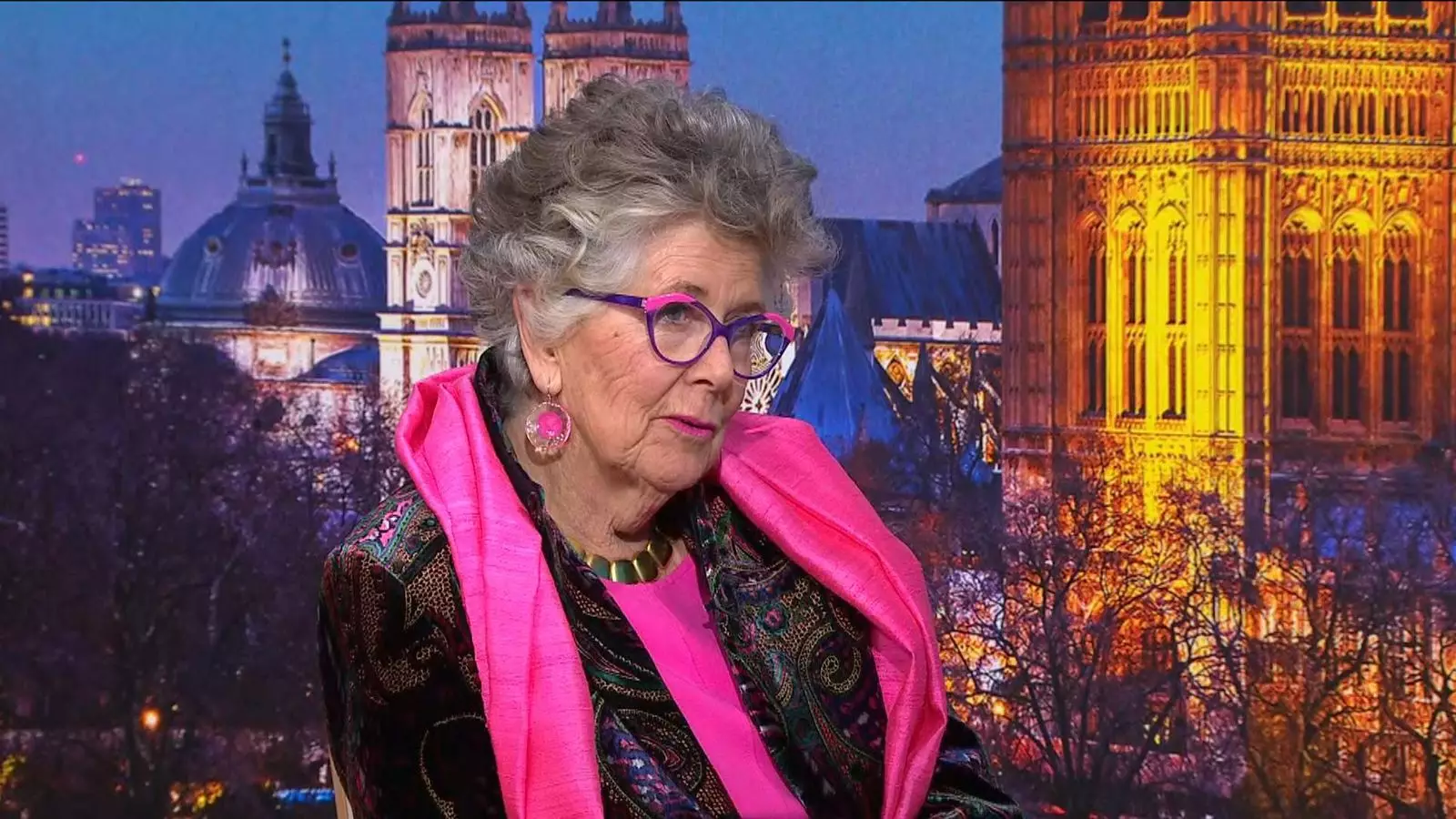Dame Prue Leith, a revered figure in British media, has recently lent her voice to the contentious issue of assisted dying, correlating her stance with personal experiences that have profoundly shaped her views. Her narrative is anchored in the painful memories of watching her brother succumb to bone cancer, a process that was marked by excruciating suffering. Leith’s account is compelling; she describes the alarming scenes her family endured, underscoring her belief that compassionate choices should be made available for those facing agonizing terminal illnesses.
David, her brother, was in his sixties, and as his battle unfolded, Leith was a firsthand witness to his profound despair. The insufficient pain relief he received, limited by medical regulations, left an indelible mark on her psyche. “The morphine would work for a couple of hours, but then it would fail,” she reminisces, evoking a sense of frustration and helplessness in the face of systemic limitations. This personal connection fuels her advocacy for reform, suggesting that genuine understanding of suffering often paves the way for change in societal attitudes.
However, the narrative becomes more complex when considering the perspectives of her family, particularly her son, Danny Kruger, who occupies a notable position in politics as the shadow work and pensions minister. Kruger’s views diverge significantly from his mother’s passionate advocacy, as he contends that assisted dying legislation cannot be sufficiently safeguarded. His assertion that high-quality palliative care could negate the need for assisted dying reflects a fundamental belief in the existing healthcare framework.
This dichotomy between the lived experiences of Dame Prue and the more ideological beliefs of Kruger illustrates a larger generational divide prevalent in the discourse on assisted dying. It raises the question about how different experiences with death and suffering can shape one’s views on autonomy and medical assistance in dying. While Dame Prue represents a voice advocating for immediate reform based on emotional reality, her son remains anchored in a framework where the idealization of healthcare solutions takes precedence.
Dame Prue’s motivation for contributing to the debate transcends personal grief; it emerges from a broader desire for legal reform. As the Terminally Ill Adults (End of Life) Bill approaches a critical vote in Parliament, she implores Members of Parliament to reconsider the efficacy of the current law. Leith argues that the existing legislative framework is inadequate, echoing the sentiments of many who believe that individuals facing terminal conditions should have the right to choose their end-of-life options.
Her advocacy invites deeper consideration of the ethical implications surrounding assisted dying. Though the proposed legislation claims to have robust safeguards, opponents fear it could lead to a ‘slippery slope’ where the sanctity of life is undermined. Critics often argue that creating such legal pathways may inadvertently prioritize euphemistic solutions over ensuring the highest standard of care and emotional support for terminally ill patients.
The broader implications of the assisted dying debate resonate with societal values and mental health considerations. The emotional turmoil that accompanies terminal illness not only affects patients but also reverberates through families and communities. Advocates like Dame Prue argue that providing a compassionate option for assisted suicide alleviates some of this distress, allowing individuals to manage their suffering on their own terms. It stands to reason that many would not welcome the idea of suffering extended to familial witnesses as they navigate the harrowing journey of illness.
In contrast, Kruger’s perspective suggests a more cautious approach, insisting that societal resources should focus on enhancing existing palliative care frameworks. His belief implies a shift in legislative priority, towards developing policies that prevent the necessity for assisted dying in the first place, thus fostering an environment that encourages life-preserving treatments.
Ultimately, the dialogue surrounding assisted dying must balance the urgent need for compassion with a rigorous examination of ethical ramifications. As politicians like Kruger weigh the risks of legislative changes against the backdrop of personal narratives like that of Dame Prue Leith, it becomes imperative to create a space for constructive conversation. The insights gained from these multifaceted experiences encourage lawmakers to explore policies that not only consider humane solutions for individual suffering but also reinforce the integrity and quality of palliative care within the health system. In doing so, society can begin to navigate this labyrinth of moral dilemmas with empathy, understanding, and respect for all perspectives involved.


Leave a Reply